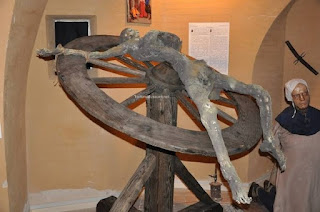Frank Lucas: How a $100,000 Chinchilla Coat Exposed Harlem's Kingpin
Frank Lucas, the notorious drug lord who ruled Harlem in the 1970s, was known for his discretion, operating under the radar of law enforcement. This all changed in 1971, when he made a decision that would alter the course of his criminal career. Lucas decided to attend a Muhammad Ali boxing match wearing a $100,000 full-length chinchilla coat. This ostentatious display of wealth caught the attention of law enforcement, leading to his eventual downfall.
The Muhammad Ali Fight
Frank Lucas had managed to keep a low profile, building a massive drug empire without attracting much attention. However, his appearance at the Muhammad Ali fight in 1971 marked a significant turning point. Wearing the extravagant coat and sitting in seats better than those of celebrities like Diana Ross and Frank Sinatra, Lucas stood out in the crowd. Law enforcement officials at the event were intrigued by his presence and his apparent wealth.
A "Massive Mistake"
Lucas later described his decision to wear the chinchilla coat as a "massive mistake." The coat, along with his high-profile seating, made him a marked man in the eyes of the police. This sudden visibility led to increased scrutiny from law enforcement agencies, who began investigating Lucas's activities more closely. The coat that was meant to display his success instead became a symbol of his downfall.
The Aftermath
The attention from law enforcement eventually led to the unraveling of Lucas's drug empire. Authorities discovered that Lucas had been importing heroin directly from Southeast Asia, bypassing traditional Mafia-controlled routes. His operation, which he called "the Golden Triangle," involved smuggling drugs in the coffins of deceased American soldiers returning from the Vietnam War. This audacious scheme allowed Lucas to dominate the heroin trade in New York City, amassing immense wealth and power.
However, the increased scrutiny following the Muhammad Ali fight exposed Lucas and his operation. Law enforcement agencies conducted extensive investigations, leading to his arrest in 1975. Lucas was convicted and sentenced to 70 years in prison, though he later cooperated with authorities, leading to a reduced sentence.
Reflections on His Mistake
Frank Lucas's reflection on his mistake serves as a cautionary tale about the dangers of ostentation in the criminal world. His decision to flaunt his wealth with the chinchilla coat was driven by a desire to assert his status, but it ultimately led to his downfall. Lucas's story highlights the importance of discretion and the fine line between success and exposure in the underworld.
In his own words, Lucas admitted, "I left that fight a marked man." His decision to wear the chinchilla coat not only marked the end of his anonymity but also set in motion the events that would lead to the collapse of his empire. The coat, once a symbol of his success, became a reminder of the consequences of attracting too much attention.
Legacy and Cultural Impact
Frank Lucas's story has had a lasting impact on popular culture, inspiring numerous books, documentaries, and films. His life was the basis for the 2007 film "American Gangster," starring Denzel Washington as Lucas and Russell Crowe as Richie Roberts, the detective who brought him down. The film highlighted Lucas's rise and fall, illustrating the complexity of his character and the intricacies of his criminal enterprise.
Lucas's legacy is a testament to the allure and danger of the drug trade, as well as the human cost of such a lifestyle. His story serves as a reminder of the consequences of living outside the law and the inevitable downfall that comes with excessive pride and visibility.
Conclusion
The story of Frank Lucas and his $100,000 chinchilla coat is a vivid example of how a single moment of indiscretion can change the course of a person's life. Lucas's decision to wear the coat to a high-profile event led to his exposure and the eventual dismantling of his drug empire. His reflection on this "massive mistake" underscores the precarious nature of success in the criminal world and the importance of maintaining a low profile.




Comments
Post a Comment